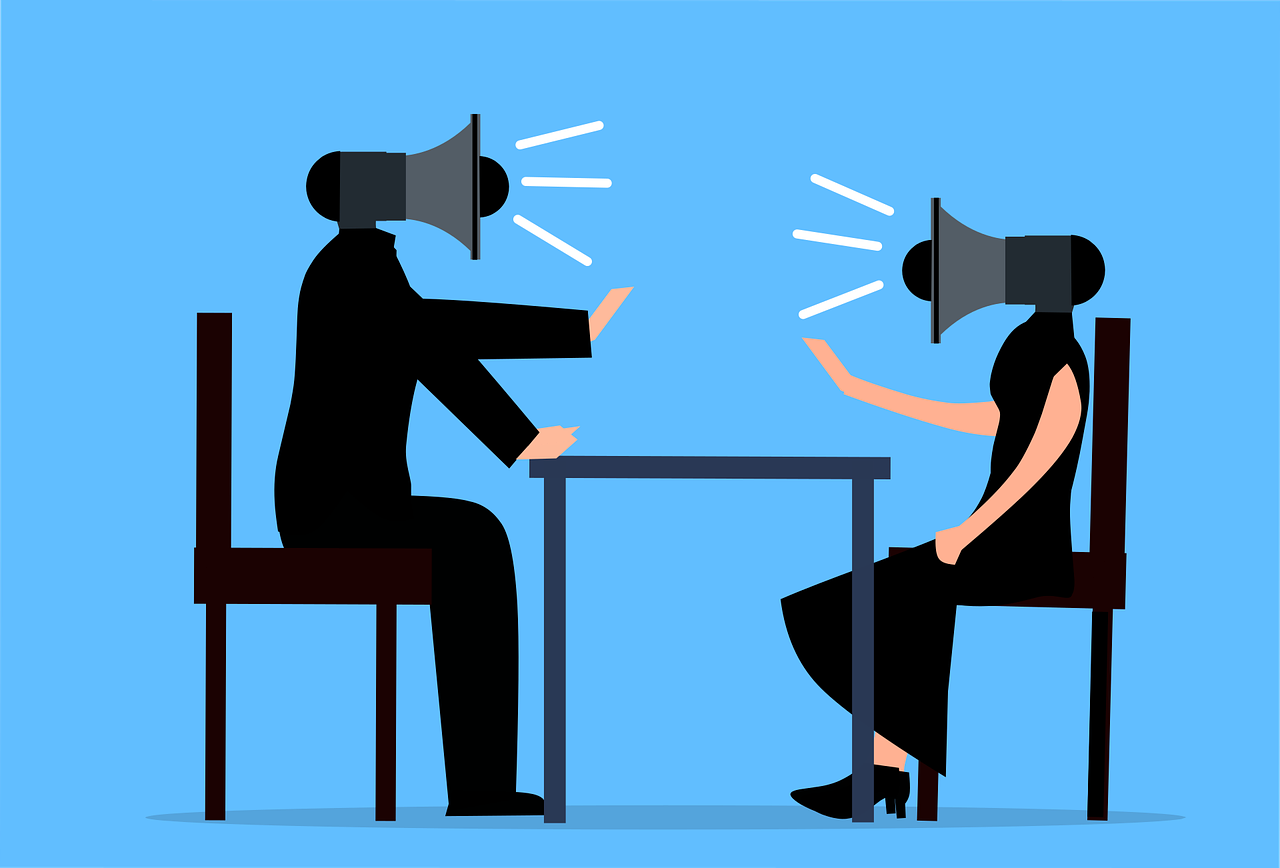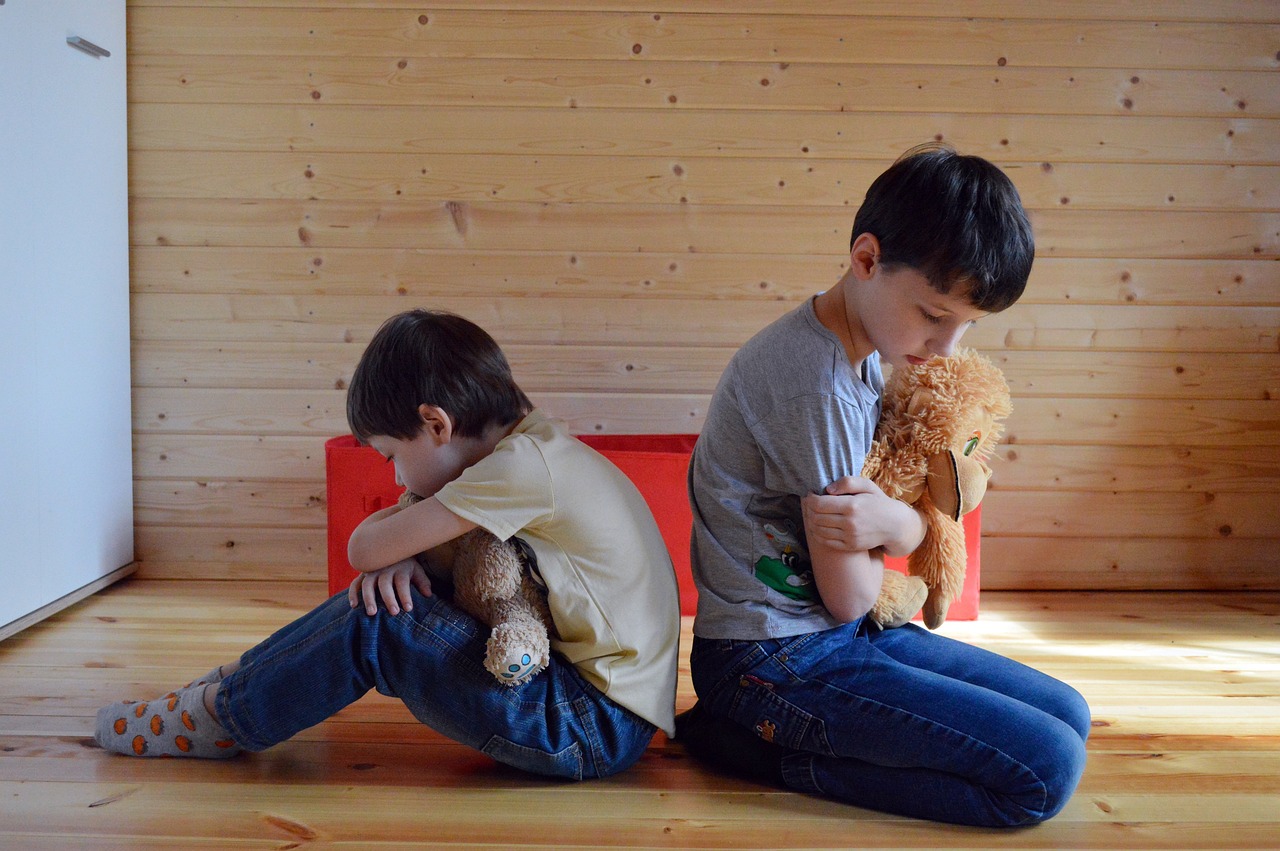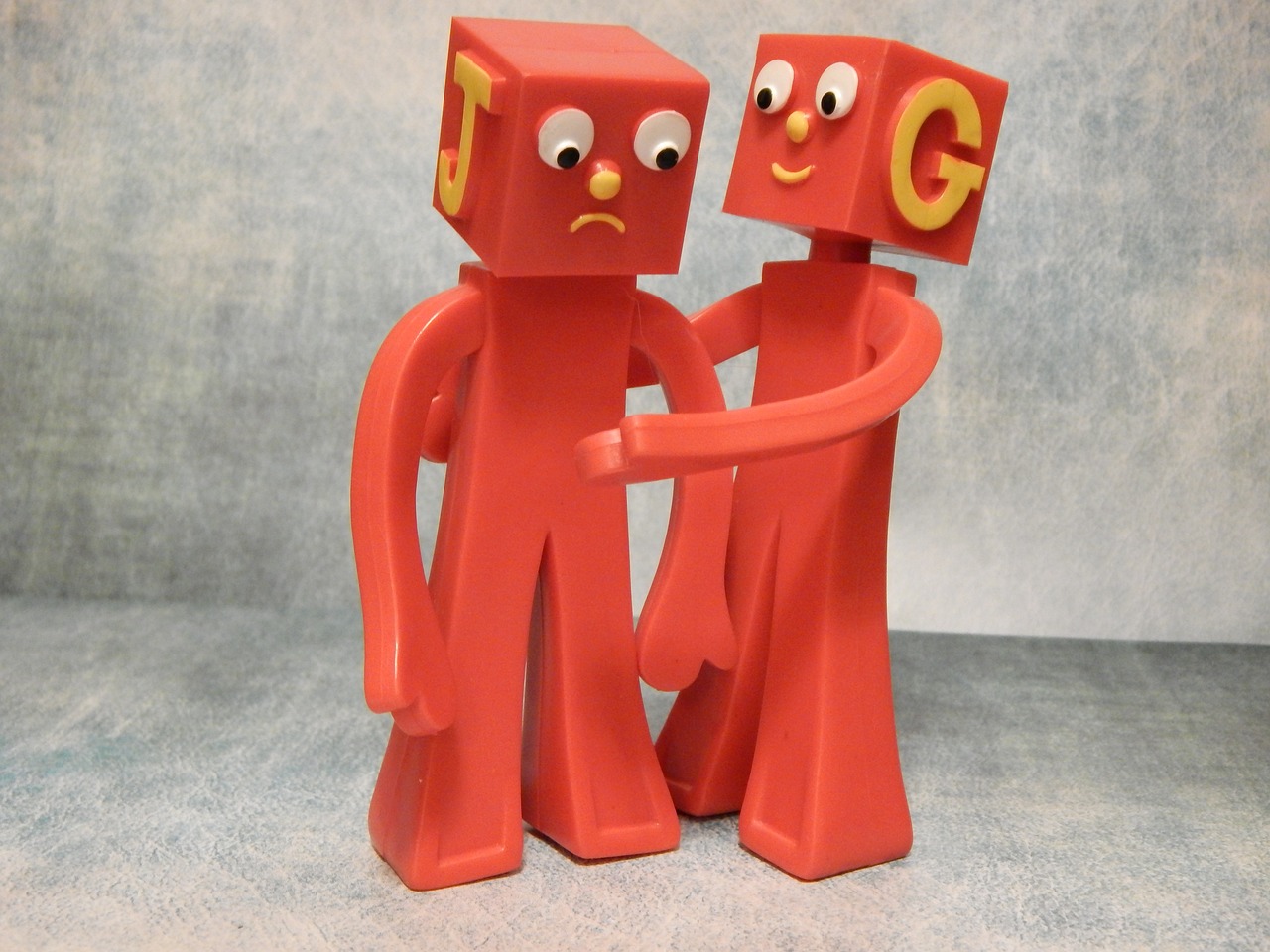Not all relationships are perfect, but it's important that you also don't overlook certain negative traits. Sometimes, it's hard to see the problems in your relationship for yourself, so we want to teach you all the bad signs to look out for so you can protect yourself and your well-being. Here are 20 toxic traits that might be holding you back from a healthy relationship.
1. Gaslighting
Gaslighting is an incredibly toxic trait that doesn't belong in any relationship. It undermines the most important foundation of any relationship: trust. It makes the other person question their reality and feelings when their experiences and emotions are constantly being denied.
 Image by Mohamed Hassan from Pixabay
Image by Mohamed Hassan from Pixabay
2. Insecurity
Insecurity can manifest in many different ways; sometimes it shows as a constant need for reassurance while other times, it's repeatedly questioning your partner's commitment without cause. This is one toxic trait that can strain any relationship, creating an environment filled with mistrust and constant validation-seeking rather than a loving and supportive one.
 Image by Ryan McGuire from Pixabay
Image by Ryan McGuire from Pixabay
3. Overly Nagging
If you already hate the nagging you get from your parents, it's so much worse when you also get it from your significant other. Persistent nagging will slowly break the foundation of any relationship by building resentment and frustration. It shifts the healthy dynamic from supportive to parental, diminishing one's sense of autonomy.
 Image by Engin Akyurt from Pixabay
Image by Engin Akyurt from Pixabay
4. Avoiding Difficult Conversations
Everyone hates having tough conversations, but avoiding them is a toxic trait that prevents growth. Doing this hides any underlying issues that are creating problems in your relationship. It also creates a barrier to intimacy and closeness, allowing unresolved conflicts to fester and slowly break the bond you two share.
 Image by Lukas_Rychvalsky from Pixabay
Image by Lukas_Rychvalsky from Pixabay
5. Being Defensive Immediately
No one wants to talk to someone who immediately shuts down or gets defensive, especially when one is trying to provide constructive feedback.
It shows an unwillingness to understand or empathize with your partner's perspective, revealing a major problem in one's communication and problem-solving skills.
 Image by svklimkin from Pixabay
Image by svklimkin from Pixabay
6. Stonewalling
Stonewalling is when your partner completely withdraws from a conversation or interaction. It's done to avoid confrontation, but in doing so, you're stopping the problem-solving process too. It leaves issues unresolved and can make both partners feel disconnected, undervalued, and frustrated.
 Image by Jeon Sang-O from Pixabay
Image by Jeon Sang-O from Pixabay
7. Being Jealous for No Reason
Jealousy is a very ugly toxic trait, especially when it's done without basis. Unfounded jealousy is an evident sign of trust issues and a lack of security in a relationship. It can lead to controlling behaviour and unwarranted suspicion, making the other partner feel disrespected.
 Image by Markus Winkler from Pixabay
Image by Markus Winkler from Pixabay
8. Expecting Them to Know What You're Thinking
Unless you happen to have the gift of reading minds, how can you expect someone else to understand what you're thinking if you don't say anything? This expectations set an unrealistic standard that only fosters frustration and disappointment. It unfairly places the burden of understanding on the other partner, making them feel stressed and annoyed.
9. Overly Criticizing
While constructive criticism can help maintain a healthy relationship, constant criticism has the reverse effect: it can diminish the partner's self-esteem and sense of worth. It might ruin any concept of open communication within the relationship, even going as far as breaking mutual respect.
 Image by Ольга Фоломеева from Pixabay
Image by Ольга Фоломеева from Pixabay
10. Being Closed Off to New Experiences
It's okay to be shy and enjoy your own comforts, but if you're constantly resisting new experiences, especially ones your partner is interested in or loves to do, it can stagnate a relationship's growth pretty quickly. If you're unwilling to participate in opportunities for shared adventures and new learning, the relationship can become boring and lead to dissatisfaction on both ends.
 Image by Victoria from Pixabay
Image by Victoria from Pixabay
11. Being Constantly Negative
No one loves a Negative Nancy, and when you're in a relationship, it can drain all the energy and happiness out of it. This toxic trait leaves behind a gloomy atmosphere that can make it difficult to enjoy each other's company.
 Image by PublicDomainPictures from Pixabay
Image by PublicDomainPictures from Pixabay
12. Reckless Behavior
Reckless behaviour when you're showing a disregard for your partner's well-being and the relationship's health can be a dangerous one. It can put both partners in stressful situations or even ruin trust, which definitely isn't worth the consequences if it's something that could have been easily avoided with more caution.
 Image by Victoria from Pixabay
Image by Victoria from Pixabay
13. Temper Issues
Not being able to control your temper creates an environment of fear or walking on eggshells for the other partner. It's incredibly disruptive when it comes to healthy communication, and can even lead to emotional or physical harm. It's a major red flag that can't be overlooked, especially if your partner isn't interested in improving it.
 Photo by Ashish_Choudhary on Pixabay
Photo by Ashish_Choudhary on Pixabay
14. Not Thinking About How Things Affect Your Partner
When you're in a serious relationship, you have to start thinking about how your actions not only affect you, but your partner too. Failing to consider your partner's feelings or how what you do impacts them too, shows a lack of empathy and respect. This is a selfish perspective that can lead to plenty of arguments, hurt feelings, and resentment.
 Image by Hamed Mehrnik from Pixabay
Image by Hamed Mehrnik from Pixabay
15. Growing Lazy
While mild laziness might be a sign of a comfortable relationship, if you become too complacent, it might come off as a lack of investment. This can be a toxic trait that leads to stagnant relationships and one where one or both partners feel neglected or underappreciated.
 Image by Robin Higgins from Pixabay
Image by Robin Higgins from Pixabay
16. Manipulative
Manipulation in any form—whether emotional, financial, or psychological—is a betrayal of trust. It seeks to control or twist the partner's actions and feelings for selfish gains, eroding the mutual respect and honesty vital for a healthy relationship.
 Image by Steve DiMatteo from Pixabay
Image by Steve DiMatteo from Pixabay
17. Setting Too High of Expectations
No matter what you do, it's never a good idea to set too high of an expectation. Unrealistically high expectations in a relationship can put unwanted stress and pressure on the other partner, which only leads to disappointment. It's important that you have goals and ambitions, but they should always be balanced with understanding.
 Image by Hieu Van from Pixabay
Image by Hieu Van from Pixabay
18. Not Apologizing Sincerely
If you made a mistake, apologize!
If your partner is somehow unable to offer a sincere, genuine apology, it only demonstrates that they have a lack of accountability and respect for the other's feelings. Proper apologies are important and they're key to healing and moving forward in any relationship.
19. Doesn't Own Up to Their Faults
Don't be stubborn - own up to your mistakes! Refusing to acknowledge one's own faults is a dangerous trait that prevents personal growth, but also relationship growth. It fosters an environment of blame and defensiveness rather than one with open communication.
 Image by Foundry Co from Pixabay
Image by Foundry Co from Pixabay
20. Two-Faced Behavior
Being two-faced, or acting differently behind your partner's back, undermines the trust and integrity of the relationship. Honesty and consistency are cornerstones of a strong, healthy partnership, without which the relationship can become superficial and insecure.










